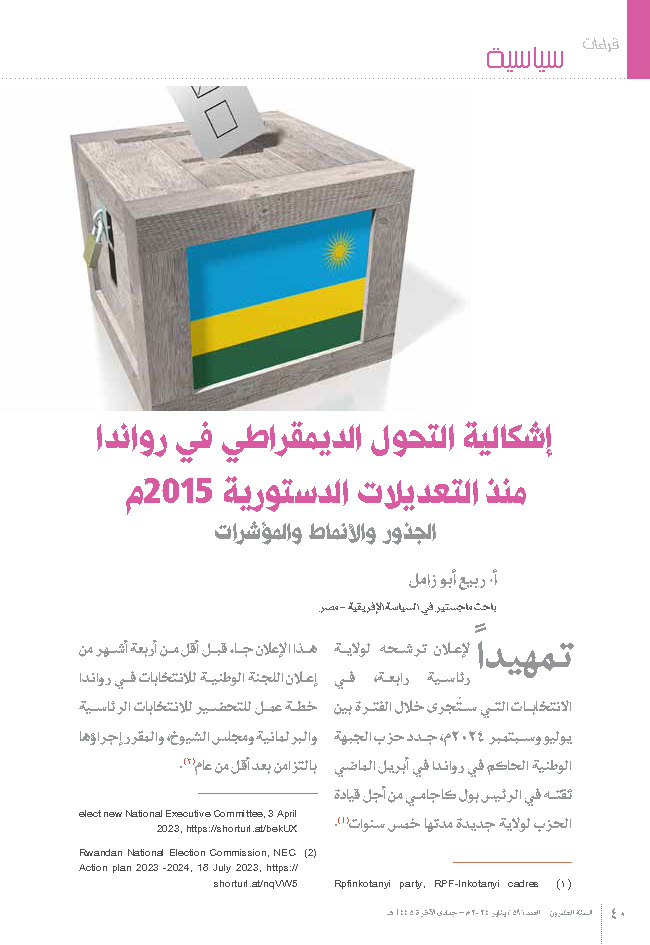Publisher: Qira’at Afriqiyah Magazine
Issue: 59, January 2024
ISSN: 2634-131X
Year : 20
Pages: 40-49
Author: Rabie Abu Zamil
Download pdf

Abstract:
The experience of democratic transition in Rwanda is one of the most important African experiences which is useful in understanding how to rebuild African societies, that emerged from long periods of ethnic division and were stuck at the same time in the process of democratic transition. This paper evaluates the experience of democratic transition in Rwanda - that is located in the middle of the continent - since 2015, which witnessed a careful dissection of the constitutional amendments that were passed - at the time - for the favor of President Paul Kagame, enabling him to remain in power until 2034 “in theory”, with consideration to his latest announcement of candidacy for a new presidential term in the elections scheduled for 2024, including a description and analysis of the roots of transformation in Rwanda and its patterns, specifically the pattern of armed struggle and revolutionary disobedience, as well as the pattern of the transfer of power through elections. The paper also covers monitoring and analysis of a set of measurable indicators. To test whether Rwanda has achieved a truly democratic transition by: holding regular elections, dealing with the opposition, applying transitional justice, the legal and institutional framework, separation of powers, the rule of law, transparency and accountability. The research problem revolved around a main question: Did the 2015 constitutional amendments in Rwanda lead to overcoming the transition phase, or do they express a “distorted” shift towards consolidating democracy? The research paper concluded that the Rwandan regime is considered a hybrid regime between “rational leadership” through indications that it has achieved a rare degree of political stability and public safety in a sub-region suffering from conflicts and crises on the one hand, and on the other hand political tyranny given the laxity in consolidating the democratic system. Verifying the validity of the hypothesis: “The more elections are held in Rwanda, the more authoritarian rule becomes entrenched and democracy declines,” which means that Rwanda may not have a democratic government, but it adheres to the rules. and thus it reinforces the idea of the authoritarian social contract that the country has followed since the end of the genocide between The Hutu and Tutsi ethnicities in the mid-nineties of the last century.
